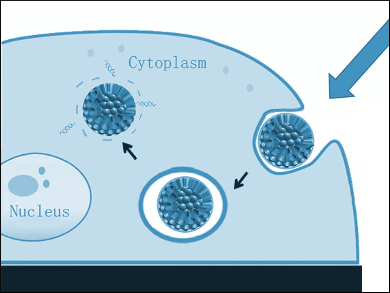Small interfering RNA (siRNA) can halt the production of certain proteins, which can help to treat cancer and other diseases. However, it is vulnerable to enzyme degradation and cannot easily penetrate cell membranes, which limits its use.
Shi-Zhang Qiao, University of Adelaide, Australia, and colleagues have developed magnetic core-shell silica nanoparticles which can deliver siRNA into the cytoplasm of cells. The team first made magnetic nanocrystal clusters (MNCs) from FeCl3 via hydrothermal synthesis. The MNcs were then coated with a mesoporous silica layer in an oil/water two-phase reaction. The particles were functionalized with (3-aminopropyl)-triethoxysilane (APTES), which enhances siRNA absorption. In a final step, the particles were coated with a protective layer of tannic acid. The coating is pH-sensitive and helps to release the siRNA inside the cell.
The nanoparticles have uniform sizes of about 150 nm, large surface areas of 411 m2/g, and high pore volumes of 1.13 cm3/g. They have a siRNA loading capacity of 2 wt% and strongly respond to external magnetic fields. The researchers tested the particles suitability as carriers and were able to successfully deliver siRNA into the cytoplasm of human osteosarcoma cancer cells in vitro with the help of a magnetic field.
- Magnetic Core-Shell Silica Nanoparticles with Large Radial Mesopores for siRNA Delivery,
Lin Xiong, Jingxu Bi, Youhong Tang, Shi-Zhang Qiao,
Small 2016.
DOI: 10.1002/smll.201600531




